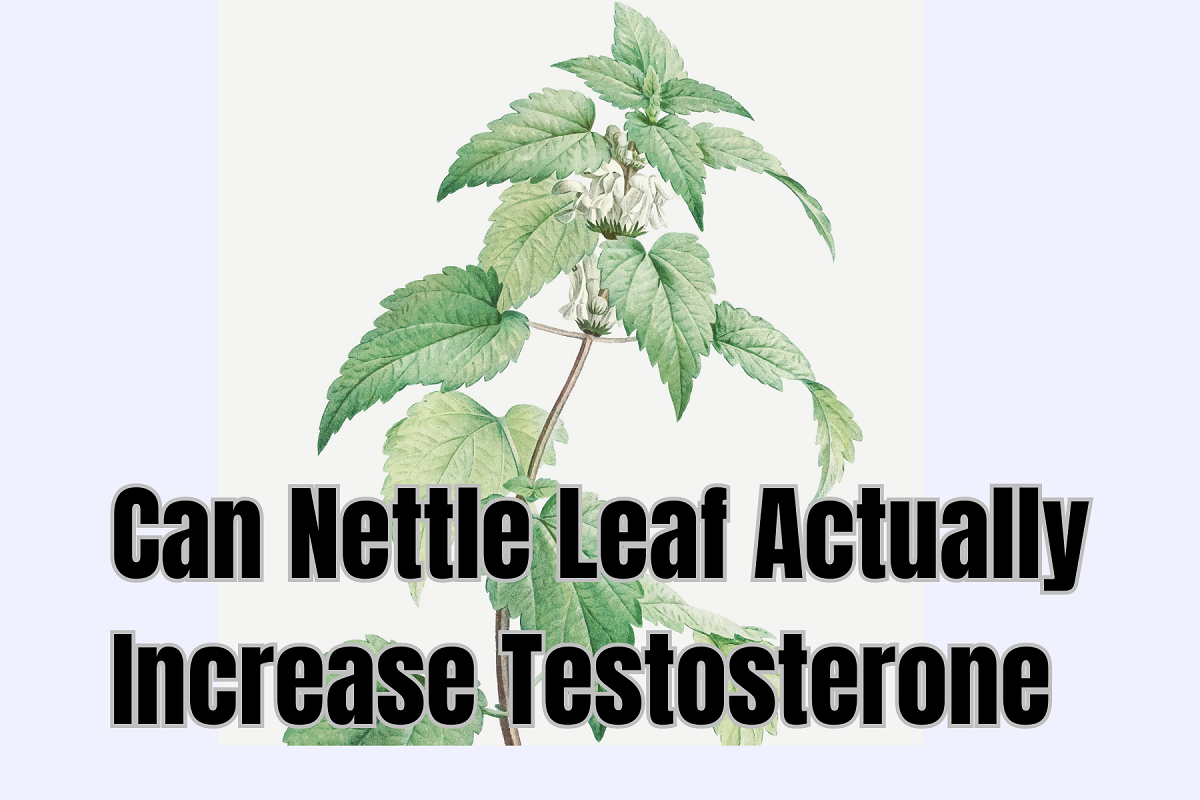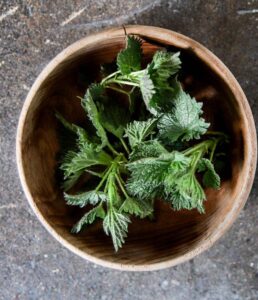Can Nettle Leaf Increase Testosterone Levels? Know What Studies Says!

If you have been looking into testosterone-boosting supplements, you would have come across Nettle leaf extract as one of the ingredients in many of them. These boosters claim that this herb assists in fixing low testosterone issues in men.
The question is – does nettle leaf actually have the potential to improve testosterone? Well, after digging deeper into this subject, and going through various research studies and their reports, I’ve have come up with this article on whether or not this herb is really that potent. Read on to find out more.
What Nettle Doesn’t Do – As Per The Science
Before getting into the detailed discussion on how stinging nettle helps improve testosterone deficiency in men, it is important to clarify some important facts.
While we know that this herb has been added to various testosterone boosters, there are no studies so far that say that Nettle directly triggers the production of testosterone in the body. Instead, it has secondary effects on testosterone which we will discuss in detail in the next sections.
Stinging Nettle also appears to be extremely beneficial for prostate health due to its anti-inflammatory properties. A research study conducted on 558 test subjects found that this herbal extract is useful in treating benign prostatic hyperplasia (prostate enlargement) and associated urinary complications. However, the level of testosterone remains unchanged during the clinical trial.
What Does Scientific Research Say On Nettle Leaf & Testosterone?
Earlier we discussed that nettle has no direct impact on the testosterone ‘production process’ in the body. However, what it does is- it helps maintain the existing testosterone levels and improves the bioavailability of testosterone in two different ways. To get into this, you need to first understand the two mechanisms in the body that affect testosterone concentrations significantly- Aromatase and Sex Hormone Binding Globulin (SHBG).
Aromatase is the enzymatic activity in which the enzyme estrogen synthase converts the androgens in the body to estrogens thus increasing the estrogen concentration. It can be quite a depressing situation where the hormone you want (testosterone) reduces in the body and the one that you do not actually need increases.
Sex Hormone-Binding Globulin (SHBG) is a protein found in the blood which gets attached to the free testosterone thus lowering the hormone levels. This happens when it is not able to attach to the cells in the muscles, bones, etc. that actually need it.
Nettle Extracts And Aromatase

We found quite a few studies and reports on the impact of stinging nettle on aromatase. Where one of the research studies found that nettle roots have aromatase-inhibiting properties, another evaluation of the possible effect of nettle on aromatase activity later confirmed this fact. This means that nettle supplementation reduces the conversion of testosterone to estrogen which otherwise occurs as a result of aromatase, thus, maintaining and protecting the testosterone concentration.
In 2012, the European Medicines Agency included an extensive study on the aromatase inhibition ability of nettle extract in their assessment report. One of the latest publications from the Italian Journal of Animal Science showed how the extracts from this herbal plant helped improve the fertility of old quails.
Nettle Extracts And SHBG

Testosterone is found in the bloodstream of men in two different forms – free or bioavailable testosterone and total testosterone. Sex-hormone binding globulin (SHBG), as the name implies, is a blood protein that attaches to the free testosterone, making it incapable of any function. In fact, nearly 98% of the testosterone gets occupied with SHBG leaving just 2% for the body to use. Study has shown that nettle extracts inhibit the binding activity of these blood proteins thus increasing the bioavailability of testosterone.
Another finding from a molecular analysis confirmed that Nettle has a chemical compound called divanillyltetrahydrofuran, or DVT which controls the interaction between free testosterone and SHBG and actively prevents the protein from getting attached to the androgen.
Conclusion
After digging deeper into the efficacy of nettle on testosterone, we can say that nettle extracts do have a positive impact on testosterone health. While there is no proof that the herb increases the production of testosterone from its source, it does inhibit two body processes- aromatase and SHBG which are responsible for reducing the presence of testosterone. By inhibiting these activities, It prevents the conversion of testosterone to estrogen or the free testosterone from getting bound to the protein inhibitor thus protecting and maintaining the amount of serum testosterone.
